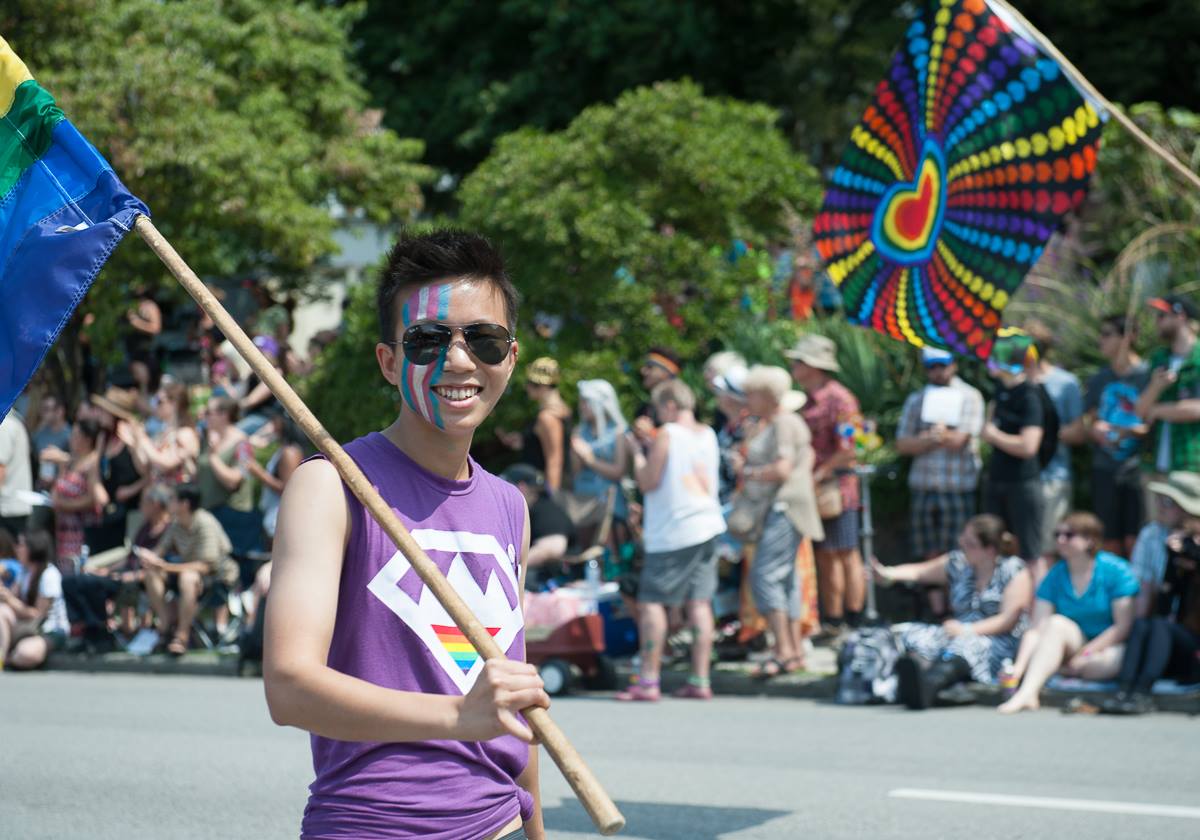I fell in love for the first time when I was in Grade 12. But that’s a story for another day.
I flirted for the first time in Grade 11, with an internet radio DJ who played Cantopop on Window’s Winamp media player from midnight to 2am. I flirted with her under the guise of a listener named Ralph.
The name Ralph came from the protagonist in William Golding’s Lord of the Flies, part of the curriculum for Grade 11 English. That was where I learned to read theme and symbolisms in stories. While Lord of the Flies brimmed with symbolisms and dystopia, democracy, violence, and power — all worthy subjects — for me, it was about Ralph and his body.
“You could see now that he might make a boxer, as far as width and heaviness of shoulders went, but there was a mildness about his mouth and eyes that proclaimed no devil.”
Golding’s descriptions of Ralph’s physical appearance were detailed and frequent throughout the book. Having grown up in a Catholic school that removed the entire human anatomy chapter from our science textbook because it included sex organs, this was the first time I had ever encountered a boy’s body described with such reverence.
Lithe but athletic, a natural leader yet possessing a “mildness,” the boy character was my ideal of personhood, both in appearance and charisma. I was obsessed with Ralph, an obsession that came from a place of desire and yearning. Ralph’s body was the body that I wanted for myself.
That was two years before the words “gay and lesbian” entered my vocabulary, three years before “queer,” and four before “trans.” I understood nothing about my yearnings and inclinations, but inexplicably, like I had no will of my own, as if my actions were guided by an invisible, irresistible force, I found myself becoming “Ralph.”
My room at the time was in the basement, with only a very small window near the ceiling. Under the dark of night and the anonymousness of the internet, I took on the persona of “Ralph” online: in forums, in role-play games, and on the internet radio station’s request board.
When Cantopop girl mentioned that she had a rough day, I would request upbeat songs and dedicate them to her as a gesture of comfort and support. I would leave comments where people left song requests, and she would respond to my comments with her voice on the air. That was how we interacted, and our flirtations lasted a little over a month.
I don’t think I was particularly attracted to her, but she saw me and responded to me as a boy, and that motivated me enough to continue our game.
“You are different from other boys,” she said once. “Kinder, gentler and more thoughtful.”
And my heart ached.
Rather than finding liberation, the process of playing “Ralph” left me drowning deeper and deeper in shame. It was fun escapism, but there was always a realist in my brain that knew Cantopop girl would be disgusted if she ever found out the “truth,” that I was not the boy she thought I was.
Rather than liberation or insight, the experience filled me with despair and hopelessness, the feeling that I was a walking, perverted lie.
The first time I saw this anguish enacted was through the character of trans man Brandon Teena in the movie Boys Don’t Cry. In his irrepressible desire to walk the world as Brandon, in his hopelessness and fear that upon discovery of his lie (which is not really a lie but more of an misunderstanding between Brandon and the world), that the game, the dream, will be over, I found a mirror to my soul.
The game did indeed end for Brandon, in brutal death. Those were the days when movies about queer and trans people were few and far between, and those characters almost always died. Perhaps I too, would be dealt death for the same deception.
One day, the radio DJ gave me her phone number and said that she wanted to talk to me. I knew that as soon as she heard my voice my cover would be blown. Rather than coming out, I ghosted her. I deleted Winamp from my computer and I deleted all my game accounts. I buried Ralph like a dirty secret, deep, deep into the darkest corners of my soul, bound in chains and locks and I threw away the keys.
Two years later, I came out as queer and my world fell apart. I became estranged from my family. Friendships and relationships became more challenging. I lost jobs, I lost housing, my mental health was decimated, my school work suffered.
I was completely lost, and salvation came to me in the form of intersectional queer feminism.
Intersectional queer feminism gave me a comprehensive, scientific analysis and explanation of why, despite my best intentions, my life had gone to shit. It was an explanation beyond that “I had strayed from God’s path for me and have therefore lost His favour and blessing.” It helped me unravel the chains placed on me by the patriarchy and allowed me to reclaim and embrace the womanhood and femininity that I had been taught to disdain and reject.
It was only when I knew that I loved and celebrated womanhood with my whole being that I could be sure that womanhood was not for me. When I learned to accept the beauty in all bodies, I was able to love my own body enough to shape it into what I need it to be.
I am not a particularly imaginative person. For me to visualize the life I wanted to live, the person I wanted to be, I had to look to many courageous, trailblazing, creative role models who dared to live their lives outside the box. People courageous enough to demand that laws and structures change so we can realize the vision we have for our lives.
Trans visibility is more than being able to see ourselves on screen. It is being seen by the healthcare system so we can access necessary healthcare. It is being seen by our school curriculum so we can learn about our identities and histories. It is being seen by policy makers so that spaces and social services can be designed to be accessible to us, too. It is having our stories told, in print, on stage and on screen, so we can understand ourselves and be understood by others.
The world has no doubt changed since I was last in my basement bedroom running Windows 98 on a dial-up connection. In Canada, my right to use the name and pronouns that feels right for me is protected by law. This was a hard fought victory won by generations of queer and trans activists, artists and scholars, and they continue fighting to ensure our legals rights are reflected by people’s behaviour.
But outside the little pockets of freedom and safety that queer and trans communities have carved out for ourselves, most of the world is still a dark basement, where safety requires repression and people continue to live in needless shame. And that’s why visibility continues to be important to queer and trans lives.


 Why you can trust Xtra
Why you can trust Xtra


